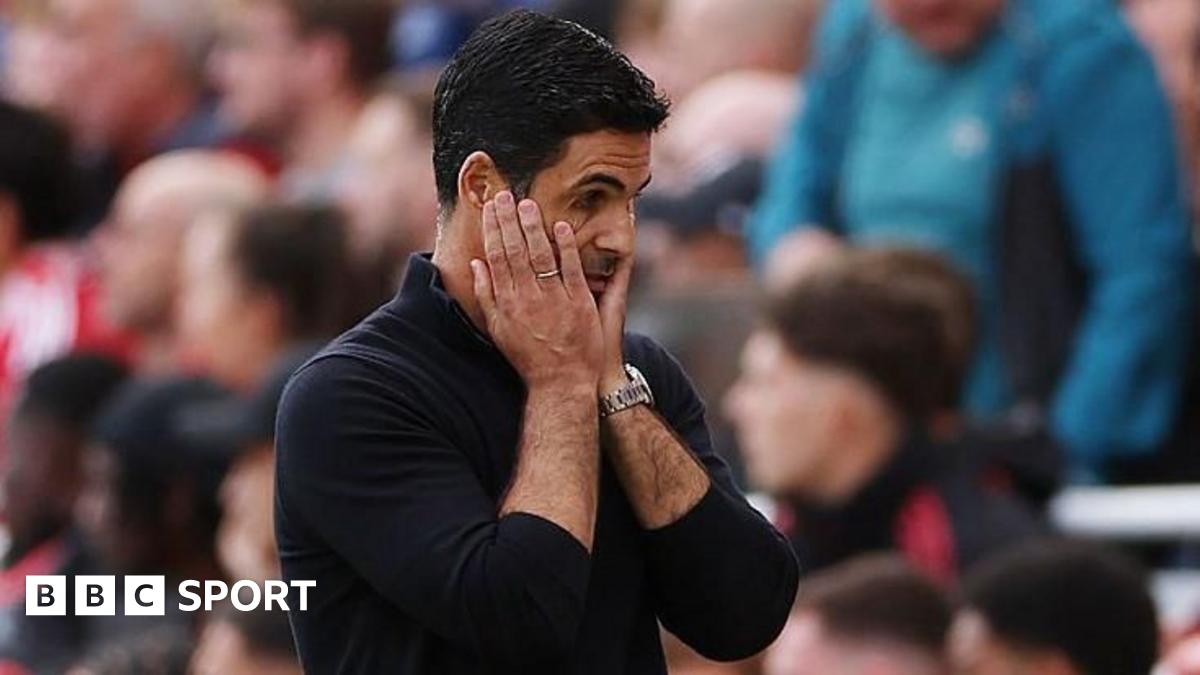Arsenal approached their early-season showdown against reigning Premier League champions Liverpool with a bold social media proclamation: Make a statement. This Anfield clash represented more than three points – it was a measuring stick between England’s established powerhouse and their most credible challengers. When Dominik Szoboszlai‘s sublime 83rd-minute free-kick curled beyond David Raya, it brutally exposed how Arteta’s Arsenal had squandered a golden opportunity to shatter psychological barriers and announce their title credentials.
Arteta’s Arsenal: When Caution Cost Continental Ambitions
The Gunners’ ultra-conservative approach at Anfield betrayed their pre-match bravado. Arteta’s Arsenal didn’t resemble a team seeking to dethrone champions, but rather a side overawed by the occasion. While no rational observer expected gung-ho tactics at this fortress, the visitors’ risk-averse strategy crossed into self-defeating territory. Records tumbled for all the wrong reasons: no shots on target until the 70th minute, just 33% possession, and precious few attacking combinations to trouble a Liverpool defense that conceded five times in their first two fixtures.
This tactical timidity proved particularly perplexing given Arteta’s Arsenal revamped squad. Their £248m summer spending spree – highlighted by Viktor Gyokeres‘ £64m arrival from Sporting Lisbon and the £60m coup for Eberechi Eze – signalled ambitious intent. Yet when the moment demanded boldness, the Gunners retreated into their shells. Gyokeres cut an isolated figure upfront, starved of service and comfortably marshalled by Virgil van Dijk. Eze’s delayed introduction until the 70th minute left fans wondering what dynamism he might have injected earlier.
The Anfield Curse Tightens Its Grip
Arteta’s Arsenal couldn’t escape the haunting spectre of history on Merseyside. The Gunners’ winless run at Anfield now stretches to 13 Premier League matches (8 losses, 5 draws) dating back to September 2012. Even more damningly, they’ve kept just one clean sheet in their last 27 league visits. While injuries to Bukayo Saka, Martin Ødegaard, and William Saliba (who lasted just five minutes) offered mitigation, these statistics underscore a mental block that transcends personnel.
Crucially, this match represented a psychological pivot point. Victory would have administered belief coursing through an emerging squad. Instead, Arteta’s Arsenal delivered a performance that implied lingering inferiority complex. When Mikel Merino replaced Ødegaard in the creative midfield role, it symbolized safety-first thinking at precisely the moment the occasion demanded daring. The Gunners only stirred into attacking life after Szoboszlai’s breakthrough, by which time Liverpool’s defensive resilience had solidified.
The Fine Margins of Title Ambitions
Post-match, Arteta correctly identified the contest’s decisive nature: It was going to be decided by an individual error or a moment of magic. You cannot dominate here for 90 minutes. However, his assertion that Liverpool were suffering stretched credulity. The Reds weren’t at their imperious best yet still dictated much of the game’s rhythm, registering 15 shots to Arsenal’s 7 and controlling midfield battles through Alexis Mac Allister and Wataru Endo.
Where Arteta’s Arsenal genuinely improved was defensive organization – a hallmark of their evolution. Saliba’s absence saw Gabriel and Jakub Kiwior marshal the backline commendably, limiting Mohamed Salah to half-chances. But title-winning sides convert disciplined defending into clinical attacks – a transition Arsenal failed to execute. Arteta acknowledged as much: We have to put the ball in the back of the net if you want to win the game.
The Road Ahead for Arteta’s Arsenal
This early-season defeat needn’t derail ambitions, but it illuminates critical growth areas for Arteta’s Arsenal:
1. Big-Game Mentality: Converting respect for opponents into assertive play rather than reactive fear
2. Attacking Fluency: Integrating Gyokeres more effectively and unleashing Eze’s creativity earlier in decisive matches
3. In-Game Management: Knowing when conservatism crosses into passivity
While Klopp’s Liverpool claimed an ominous early advantage, Arteta found legitimate positives: We were much better than last year. Arsenal did display improved defensive solidity and midfield structure against Europe’s elite. However, as the manager stressed, we must find a way to win these matches if Premier League glory remains the objective.
The cruel paradox for Arteta’s Arsenal? This 1-0 loss demonstrated both their defensive maturation and attacking limitations. Gyokeres will need better service to justify his price tag, while Eze must be trusted to unlock defenses from kickoff rather than late cameos. For all the squad depth secured this summer, Arteta’s tactical choices now face intensified scrutiny.
Conclusion: Missed Opportunity or Early Warning?
As autumn approaches, Arteta’s Arsenal must confront uncomfortable truths. Their Anfield performance – disciplined but ultimately toothless – suggests a team still discerning how to marry pragmatism with penetration against elite opponents. While title races aren’t decided in August, psychological blows reverberate beyond the points tally.
Liverpool revealed champion instincts by winning ugly; Arsenal showcased improved resilience but lingering hesitation. Until Arteta’s Arsenal conquer their Anfield demons and convert cautious approaches into statement victories, questions about their title readiness will persist. The solution may lie not in further investment, but in liberating the squad’s latent attacking potential when the stakes are highest.
